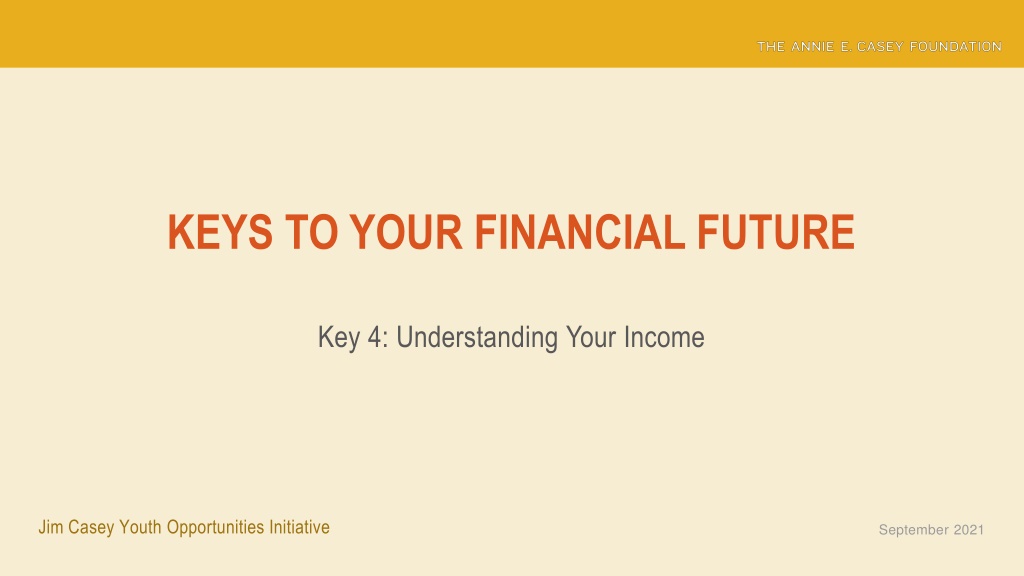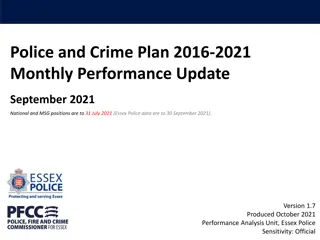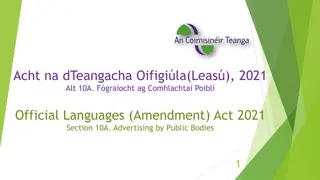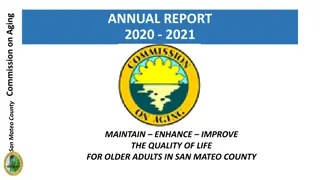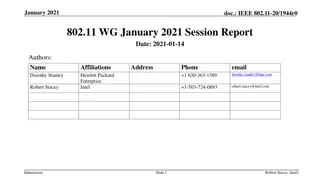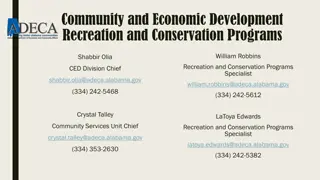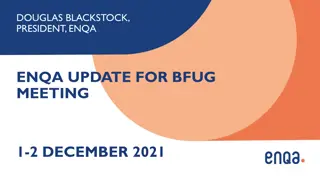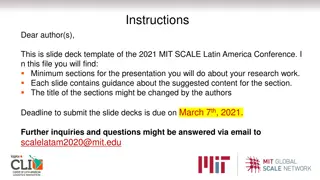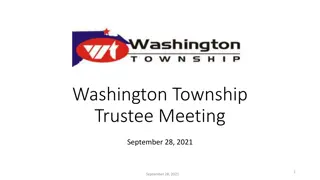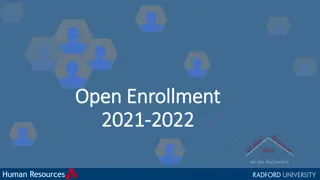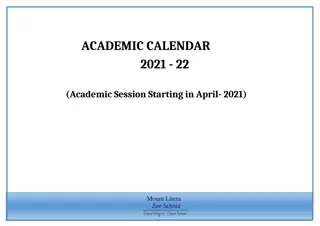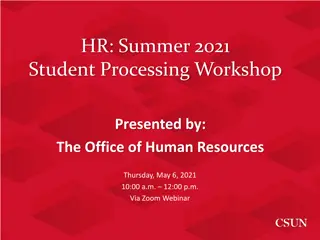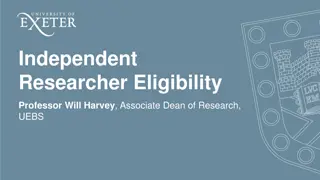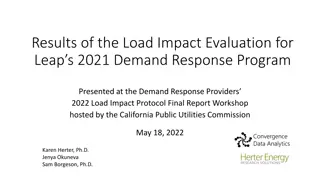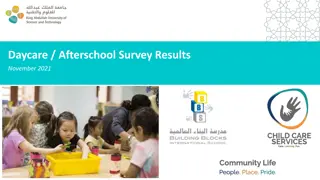Mastering Your Income and Paycheck: A Comprehensive Guide
In this guide, you will explore various aspects of income and paycheck, including different ways to receive income, understanding paychecks and paycheck stubs, completing tax forms like W-4, and knowing where to seek help with tax filings. Learn how to get paid through paper checks, direct deposit, payroll cards, and more, as well as how to decipher your pay stub to ensure correct deductions. Enhance your financial literacy and take control of your financial future.
Download Presentation

Please find below an Image/Link to download the presentation.
The content on the website is provided AS IS for your information and personal use only. It may not be sold, licensed, or shared on other websites without obtaining consent from the author. Download presentation by click this link. If you encounter any issues during the download, it is possible that the publisher has removed the file from their server.
E N D
Presentation Transcript
KEYS TO YOUR FINANCIAL FUTURE Key 4: Understanding Your Income Jim Casey Youth Opportunities Initiative September 2021
What Youre Going to Know or Be Able to Do Explain the different ways to get income Describe the different ways you can be paid (receive income) Read a paycheck and paycheck stub Complete a W-4 and understand the reason for it and how it affects both take-home pay and how much income tax you have to pay Understand when to file an income take return, generally how to file an income tax return and the information needed to complete an income tax return Know where in the community to get good, no-cost help with filing taxes or when there are problems with tax payments/returns 2
Ice Breaker What are your thoughts on getting credit? What are your thoughts on using a credit card? CREDIT = TRUST 4
How Do You Get Paid? Paper Paycheck Direct Deposit Payroll Card Cash/deposit for free at your bank Paycheck is automatically transferred into your bank account(s) on payday Your paycheck is loaded onto a reloadable debit card Cash for free at your employer s bank These often have HIGH FEES You can put your whole check into one account like a checking account or you can split it and have some automatically put into a savings account, too Costs you $$ PAY to cash it atgrocery store or check casher Your employer CANNOT require you to receive your pay on a payroll card. They must give you at least one other choice Costs you $$ 6
Understanding Your Paycheck Stub Gross Pay vs. Net Pay Gross pay minus deductions = Net pay Gross pay is what you make Net pay is what you take home Are the deductions correct? Understanding Your Pay Stub Video 7
1. How many hours did the employee work in this pay period? 2. How much did they have taken out of their check for deductions ? 3. What is their take-home pay? 8
Free Tax Preparation You do NOT have to pay someone to do your taxes for you. If your household make less than $36,000, you can file your federal and state taxes for free at https://freefile.intuit.com and If your household makes less that $57,000 you can find a free VITA tax preparation site in your community by visiting https://irs.treasury.gov/freetaxprep 10
Filling out the W-4 Form Video 11
Need More Money? Education Pays Unemployment rates and earnings by educational attainment, 2019 UNEMPLOYMENT RATE (%) MEDIAN USUAL WEEKLY EARNINGS ($) Doctoral degree 1,883 1.1 Professional degree 1,861 1.6 Master s degree 1,497 2.0 1.How much do people with a bachelor s degree earn per week (median amount)? Bachelor s degree 1,248 2.2 Associate degree 887 2.7 Some college, no degree 833 3.3 High school diploma 746 3.7 2.How does this compare to how much people with less than a high school diploma earn per week? All workers: $969 Less than a high school diploma 592 5.4 Total: 3.0% Note: Data are for persons ages 25 and over. Earnings are for full-time wage and salary workers. Source: U.S. Bureau of Labor Statistics, Current Population Survey.
Rates of College Graduation 40% 34% 35 30 25 20% 20 15 13% 10 5 0 White families Black families Latino families Source: Survey of income and Program Participation (SIPP), 2008 Panel Wave 10, 2011 15
Urban Institute YOUTHBUILD 16
Paying for Education Loans, Grants and Scholarships Scholarships If it must be paid back under any circumstance, it is a loan. You can get federal loans from the federal government, federal loans through your school or private loans from banks or credit unions. Grants If it never has to be repaid, it is a grant or a scholarship. Grants come in the form of federal aid and state grants. They are generally given to students that have financial need. Tuition Waiver Income Completing the FAFSA Student Loans The FAFSA asks questions to figure out if you are dependent or independent. If you are independent, your resources income and assets are counted differently. In most cases, being considered independent will make you eligible for more aid. One specific question on FAFSA is: At any time since you turned age 13, were both of your parents deceased, were you in foster care or were you a dependent ward of the court? If you answer yes, you will be considered independent even if you are living with a foster family or already 18 years old and not involved in the child welfare system. 17
Wrap Up Questions? What s one thing you learned? 18
